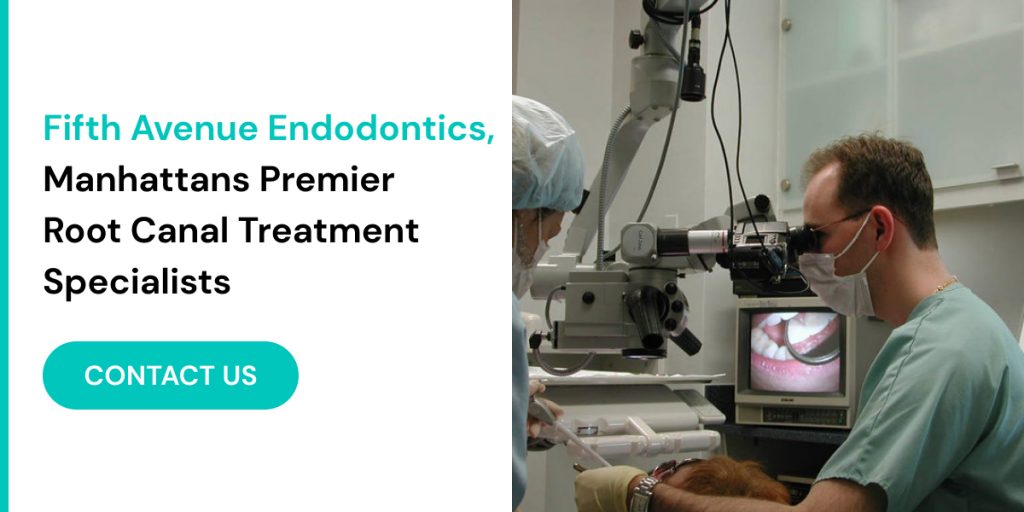In the world of endodontics, patients with autoimmune disorders present unique challenges, and Sjögren’s Syndrome is a prime example. This chronic condition disrupts the body’s moisture-producing glands, leading to symptoms such as dry mouth and dry eyes. These symptoms can have a profound impact on oral health, making endodontic treatments more complex. At Fifth Avenue Endodontic, Dr. Iofin and his dedicated team in Manhattan, New York, understand the intricacies of managing dental care for individuals with Sjögren’s Syndrome. Their expertise ensures that patients receive personalized and effective treatment.
Sjögren’s Syndrome can alter the typical dynamics of dental care, from increased susceptibility to tooth decay and gum disease to complications in the healing process after endodontic procedures. Understanding these challenges is crucial for providing comprehensive care. This blog post delves into how Sjögren’s Syndrome specifically affects endodontic therapy, the strategies employed by Manhattan Endodontics to address these challenges, and what patients can expect throughout their treatment journey. By addressing these issues with specialized approaches, Dr. Iofin and his team aim to offer optimal care and improved outcomes for patients dealing with this complex condition.
Understanding Sjögren’s Syndrome
Sjögren’s Syndrome is a chronic autoimmune disorder that affects the body’s moisture-producing glands, leading to a range of symptoms primarily impacting the mouth and eyes. Characterized by dry mouth (xerostomia) and dry eyes (keratoconjunctivitis sicca), this condition occurs when the immune system erroneously targets and damages the glands responsible for producing saliva and tears. As a result, patients experience reduced secretion of saliva, which can lead to significant complications in oral health.
Saliva plays a crucial role in maintaining oral health by helping to neutralize acids, aid in the digestion of food, and provide essential protective enzymes. When saliva production is diminished, the mouth becomes more susceptible to a range of issues, including increased risk of tooth decay, gum disease, and oral infections. This heightened vulnerability poses unique challenges for endodontic therapy, which involves treating infections and damage within the tooth.
In patients with Sjögren’s Syndrome, the lack of sufficient saliva can make endodontic procedures more complex. The dry environment can affect the comfort and effectiveness of treatments such as root canals, as well as complicate the healing process post-treatment. Additionally, the reduced natural lubrication in the mouth can lead to difficulties in maintaining proper hygiene and can exacerbate oral discomfort.
Understanding these challenges is essential for tailoring endodontic care to meet the needs of patients with Sjögren’s Syndrome. At Fifth Avenue Endodontic, Dr. Iofin and his team in Manhattan, New York, are committed to addressing these unique needs with specialized approaches to ensure the best possible outcomes for their patients. This involves comprehensive assessments, customized treatment plans, and targeted post-treatment care to manage the impact of Sjögren’s Syndrome on dental health effectively.

The Impact of Sjögren’s Syndrome on Oral Health
Sjögren’s Syndrome significantly affects oral health due to its primary symptom: dry mouth, also known as xerostomia. Saliva is vital for maintaining oral health as it performs several essential functions. It helps to neutralize harmful acids produced by bacteria in the mouth, which in turn protects teeth from decay. Saliva also assists in the digestion of food by breaking down starches and aids in the formation of a protective film on teeth and gums, which acts as a barrier against bacteria.
When saliva production is diminished, as is common with Sjögren’s Syndrome, the protective benefits of saliva are compromised. This results in an increased risk of several dental issues. For instance, the reduced saliva flow can lead to a higher incidence of cavities and tooth decay. Without adequate saliva to wash away food particles and neutralize acids, bacteria can thrive, leading to accelerated tooth erosion and decay. Furthermore, the lack of saliva contributes to the development of gum disease, as it decreases the natural cleaning and protective mechanisms for the gums.
The impact of diminished saliva extends to endodontic treatments as well. Endodontic procedures, such as root canals, rely on a moist environment to facilitate successful treatment and healing. A dry mouth can affect the comfort and effectiveness of these procedures. Additionally, the healing process following endodontic therapy can be slower and more complicated in patients with Sjögren’s Syndrome due to the reduced availability of saliva to aid in recovery and prevent post-treatment infections.
Given these challenges, managing oral health in patients with Sjögren’s Syndrome requires careful attention and tailored strategies. At Fifth Avenue Endodontic, Dr. Iofin and his team in Manhattan, New York, are well-versed in these considerations and provide specialized care to address the unique needs of these patients, ensuring effective and comfortable endodontic treatment outcomes.
Endodontic Therapy and Sjögren’s Syndrome
When treating patients with Sjögren’s Syndrome, it is essential to consider several factors to ensure the success of endodontic therapy. Here’s how Manhattan Endodontics, particularly at Fifth Avenue Endodontic with Dr. Iofin, approaches these unique cases:
- Thorough Assessment and Diagnosis: Before proceeding with any treatment, a comprehensive evaluation is necessary. This includes understanding the patient’s Sjögren’s Syndrome status, current symptoms, and how they might affect endodontic procedures. Dr. Iofin and his team use detailed diagnostic tools to assess the condition of the teeth and surrounding tissues.
- Customized Treatment Planning: Due to the increased risk of complications in patients with Sjögren’s Syndrome, treatment plans are tailored to address specific needs. This might involve adjusting techniques or using different materials to ensure the best possible outcome.
- Managing Dry Mouth: To help manage dry mouth during endodontic procedures, the team at Fifth Avenue Endodontic may use various strategies. These can include applying saliva substitutes, using moisture-retaining dental materials, and employing techniques to keep the mouth hydrated throughout the treatment.
- Enhanced Post-Treatment Care: Post-treatment care is crucial for patients with Sjögren’s Syndrome. Dr. Iofin emphasizes the importance of maintaining a stringent oral hygiene routine and may recommend additional measures to manage dry mouth and support healing.
- Collaborative Care: Often, endodontic therapy for patients with Sjögren’s Syndrome requires a collaborative approach. This may involve working with the patient’s primary care physician or rheumatologist to manage the overall condition and ensure the best outcomes for dental health.
Tips for Managing Oral Health with Sjögren’s Syndrome
Managing oral health effectively with Sjögren’s Syndrome involves more than just specialized endodontic care; it requires a proactive approach to daily oral hygiene and regular dental visits. Here are some practical tips to help manage oral health for individuals with this condition:
- Stay Hydrated: Keeping the mouth hydrated is crucial for alleviating dry mouth symptoms. Regularly drinking water throughout the day helps to stimulate saliva production and keeps the mouth moist. For additional relief, consider using saliva substitutes, which are available in various forms such as sprays, gels, and lozenges. These products can help mimic the effects of natural saliva and provide temporary relief from dryness.
- Use Fluoride Products: Incorporating fluoride into your oral care routine can significantly benefit individuals with Sjögren’s Syndrome. Fluoride helps to strengthen tooth enamel and makes it more resistant to decay. Using fluoride toothpaste and mouth rinses can offer extra protection against cavities, which are more common due to reduced saliva flow. Your dentist might also recommend fluoride treatments to provide added protection and support.
- Maintain Regular Dental Visits: Regular dental check-ups are essential for monitoring oral health, especially for those with Sjögren’s Syndrome. Frequent visits to your dentist allow for early detection and management of potential issues such as tooth decay, gum disease, and other oral complications. Your dentist can also provide professional cleanings and tailored advice to help manage symptoms effectively.
- Practice Good Oral Hygiene: In addition to using fluoride products, maintaining a rigorous oral hygiene routine is vital. Brush your teeth at least twice a day with a soft-bristled toothbrush and fluoride toothpaste. Floss daily to remove plaque and food particles between teeth, and consider using an antimicrobial mouthwash to reduce bacteria and inflammation.
- Adapt Your Diet: Avoiding acidic, sugary, and sticky foods can help reduce the risk of cavities and oral discomfort. Opt for a balanced diet that supports overall health and minimizes the impact of dry mouth. Chewing sugar-free gum or sucking on sugar-free candies can also help stimulate saliva production.
By integrating these strategies into your daily routine, you can better manage the challenges of Sjögren’s Syndrome and maintain optimal oral health. At Fifth Avenue Endodontic, Dr. Iofin and his team in Manhattan, New York, are dedicated to providing personalized care and support to help you navigate these challenges and ensure a healthy, comfortable smile.

Conclusion
Endodontic therapy for patients with Sjögren’s Syndrome demands a nuanced approach due to the unique challenges posed by this autoimmune condition. The reduced saliva production associated with Sjögren’s Syndrome can complicate both the procedure and recovery, making specialized care essential for achieving optimal outcomes. At Fifth Avenue Endodontic, Dr. Iofin and his dedicated team in Manhattan are well-prepared to address these complexities with tailored treatment plans designed to meet the specific needs of each patient.
By thoroughly understanding how Sjögren’s Syndrome affects oral health, Dr. Iofin and his team can implement targeted strategies to manage these challenges effectively. This includes customizing treatment approaches, employing techniques to mitigate dry mouth issues during procedures, and providing comprehensive post-treatment care to support healing and prevent complications. Their goal is to ensure that patients receive the highest quality of care and achieve the best possible results, while also maintaining overall well-being.
If you have Sjögren’s Syndrome and are considering endodontic therapy, it is crucial to consult with a specialist who understands the intricacies of your condition. Contact Fifth Avenue Endodontic to discuss your treatment options with Dr. Iofin. Together, you can create a personalized treatment plan that addresses your specific needs and helps preserve your oral health, allowing you to manage Sjögren’s Syndrome effectively while maintaining a healthy smile.

